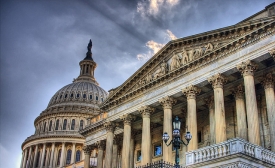national security
As a challenge to this phenomenon, in September 2015, a group of young Iranian students established "See You in Iran," a Facebook platform where former and future Iran travelers can connect and exchange information. Non-Iranians can share their unfiltered narratives about their visit to Iran, and future travelers can ask questions about their upcoming trips. Through this mechanism, "See You in Iran" aims to promote travel and provide an unguided understanding of Iran, a country that been demonized in the West for a long time.
These sorts of gender-exclusive comments and questions on size, hairstyle, and fashion reinforce perceptions of women in the foreign policy and national security worlds. They are insulting in their own right, but also prolong conscious and unconscious biases against women and their access and empowerment in these fields.
In just seven (2008-2015) years, China has developed the longest network of high speed railway (about 16,000 km with the expectation of adding another 16,000 km by 2020) in the world as well as some of the best technologies related to high speed railway development. Besides its obvious economic and technological successes, China’s high speed railway also has huge foreign policy implications in three ways.
The president’s 2015 National Security Strategy, released Friday, promised Americans the administration will confront a myriad of security and social threats with a strong focus on diplomacy and an aversion to meddling too much in developing events.
Since The United States International Communications Reform Act of 2014 (HR4490) was passed by The House of Representatives on July 28, 2014, there has been much debate about the fate of the Voice of America and how the Broadcasting Board of Governors needs to be reformed.

Reprinted from the CPD Blog by Joseph Bruns

A collection of CPD blogs and articles exploring the fate of VOA and U.S. International Broadcasting as a whole.
Recently, there has been a great deal of debate, and no small amount of axe grinding, regarding the mission and the effectiveness of U.S. international broadcasting under the Broadcasting Board of Governors.







